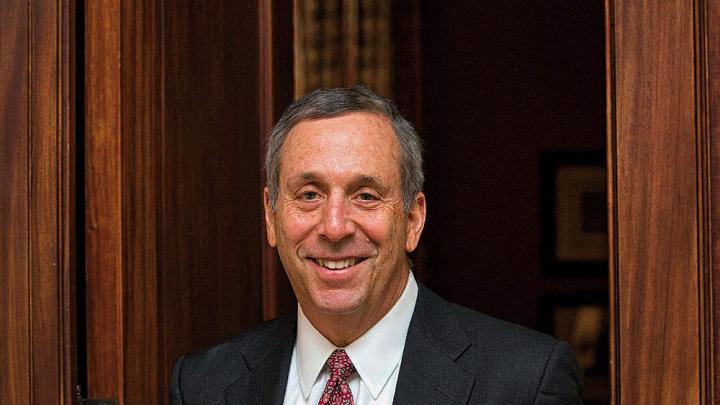I am not a pessimist by nature, but this year has given me plenty of opportunities to rethink my perspective. The scourge of racism and the ravages of climate change are everywhere apparent, and the conclusion of a contentious general election is finally in sight. No matter the outcome, higher education will be at a crossroads, and Harvard will still be contending with a global pandemic, an educational shift, and a financial blow—multiple crises that challenge our mission in direct and fundamental ways.
We are, however, entering a season of gratitude. At times like this, one has to work harder to find reasons to be grateful. But inspiration struck during a conversation with one of our faculty members about what it has been like teaching at Harvard College this semester. As it turns out, distance has created a new kind of openness among our undergraduates. They engage more deeply with course materials, use features such as Zoom “chat” to ask riskier questions and risk imperfect answers, and attend office hours more frequently and regularly. Rather than clustering in general education courses as they are wont to do in person, they have scattered over a more diverse set of offerings, perhaps feeling free to follow their academic interests more readily in the absence of their peers.
Across the University, undergraduate and graduate students are finding their footing in an online learning landscape, and our faculty members are thinking in new ways about how they approach their work. This is not to say they do not miss residential instruction—everyone misses it dearly—but some 70 percent of faculty report that they also appreciate the creativity and flexibility that digital learning tools enable, as well as opportunities to be more inclusive and to promote more equal participation. They are beginning to think through which approaches and practices will be worth preserving when they eventually return to the traditional classroom, with interactive tools high on the list of likely candidates. I would venture that scholars will look back on this time as a boon for teaching and learning, and the beginning of a renaissance in the classroom—no matter where that classroom may be.
Another unanticipated upside of going online is the extraordinary reach that we have when distance is no longer a constraint. Faculty members have had an easier time amplifying and complementing their lessons by inviting guest experts who might have been unable to travel to campus in the past. Remote attendance offers unprecedented convenience that is also shaping how we think about educational efforts that engage more of the University community. Earlier this year, the Harvard Alumni Association developed a five-part series on climate change in conjunction with alumni groups across the country. I offered welcome remarks for the first panel, which was attended by nearly 1,000 people from forty countries. Harvard has long been admired for its convening power, which I believe will only increase because of our changed circumstances.
To be sure, not everything is sweetness and light. Many of our students are still struggling to learn in home environments where internet connectivity and privacy are scarce resources, to say nothing of added responsibilities to help siblings, parents, and elders. Similarly, faculty are juggling teaching from home with parental duties, and everyone misses the casual but important social interactions that come from randomly encountering friends and colleagues in the workplace. Yet even the darkest clouds have their silver linings, and we are starting to discover opportunities to improve education long after the storm has passed. I wish I knew when that would be, but what I do know is that Harvard is leading through action. Our incredible changes in teaching and learning offer powerful proof of the resilience and robustness of our mission and our community. I am deeply grateful to witness a moment of such profound transformation—and eager to see what comes next.








